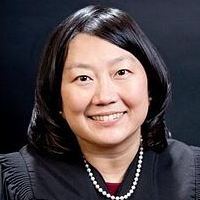Federal Judge Cites California Law in Blocking Warrantless Cellphone Tracking
 Judge Lucy Koh
Judge Lucy Koh
The U.S. Attorney’s Office for Northern California, like a lot of law enforcement agencies, uses cellphone data (beyond GPS) to track individuals with barely a nod from the courts. Last week, U.S. District Judge Lucy Koh made that a lot harder.
The judge, in San Jose, ruled that the government would have to show probable cause and get a warrant to receive 60 days of cell site location information (CSLI). She said the easier standard for acquiring a permit, merely stating specific and articulable facts, did not protect the 4th Amendment right against warrantless searches.
She upheld a ruling made by Magistrate Judge Howard R. Lloyd in April when he denied an application for what had been a routine request of a telecom to provide the historical data. That data can be used to pinpoint the movements of a subject 24 hours a day.
Companies like Verizon and AT&T store massive amounts of data on cellphone users that is collected even when the phone isn’t being used. In just has to be on. Most cellphones have programs that are constantly sending and receiving information in the background, without the owner’s knowledge.
The radio waves emanating from the cellphone ping cells on cellphone towers scattered everywhere. The tracking literally follows people into their homes, and Judge Koh found that particularly disturbing, considering past U.S. Supreme Court decisions. She wrote:
“The following principles are manifest: (1) an individual’s expectation of privacy is at its pinnacle when government surveillance intrudes on the home; (2) long-term electronic surveillance by the government implicates an individual’s expectation of privacy; and (3) location data generated by cell phones, which are ubiquitous in this day and age, can reveal a wealth of private information about an individual.”
The judge said CSLI gathered more data than putting a GPS tracker on a car, and the Supreme Court ruled in 2012 that law enforcement couldn't do that because of the Fourth Amendment. In 2014, the court unanimously ruled in Riley v. California (pdf) that law enforcement couldn’t search a cellphone without a warrant.
Still, reasonable people disagree and this issue looks like it’s headed for the Supreme Court. A divided 11th Circuit Court of Appeals went the other way (pdf) in May, overturning its own three-judge panel’s unanimous ruling that cited the 2012 Scotus decision.
The 11th Circuit majority cited the 1978 Supreme Court decision, Smith v. Maryland, which let law enforcement access phone meta data possessed by a business. But they said they would have voted the same way even without Smith because cops looking for criminal suspects trumps a diminished, not absolute, right to privacy.
Judge Koh gave a shoutout to California law when explaining “society’s expectation of privacy in historical CSLI.” She noted that state law doesn’t directly apply to a federal case, but it does count. California has made the police get a warrant for phone records for three decades, and the “high courts of Florida, Massachusetts and New Jersey have all recognized a reasonable expectation of privacy in CSLI.”
Six other states—Colorado, Maine, Minnesota, Montana, Tennessee and Utah—have legislated a warrant requirement. At least six other states—Illinois, Indiana, Maryland, Virginia, Washington and Wisconsin—passed laws requiring that police get warrants to track a cellphone in real time.
–Ken Broder
To Learn More:
Judge: Cellphone Tracking Requires a Warrant (by Ross Todd, The Recorder)
Court Rules Police Need a Warrant to Access Location Data from Your Cellphone (by Jacob Brogan, Future Tense)
California Federal Judge to Government: Get a Warrant for Cell Phone Location Data (American Civil Liberties Union)
Supreme Court Asked to End Warrantless Phone Tracking (by Steven Nelson, U.S. News & World Report)
Case o’ the Week: Our Privacy Protections Are Koh-Dependent (Ninth Circuit Blog)
Federal Courts Green Light Police Access to Cellphone Tower Records Without a Warrant (by Steve Straehley, AllGov)
U.S. Supreme Court to Cops Wanting to Search Cellphones: “Get a Warrant” (by Ken Broder, AllGov California)
Order Affirming Denial Of Application for Historical Cell Site Location Information (U.S. District Court Northern District of California) (pdf)
- Top Stories
- Controversies
- Where is the Money Going?
- California and the Nation
- Appointments and Resignations
- Unusual News
- Latest News
- California Forbids U.S. Immigration Agents from Pretending to be Police
- California Lawmakers Urged to Strip “Self-Dealing” Tax Board of Its Duties
- Big Oil’s Grip on California
- Santa Cruz Police See Homeland Security Betrayal in Use of Gang Roundup as Cover for Immigration Raid
- Oil Companies Face Deadline to Stop Polluting California Groundwater





